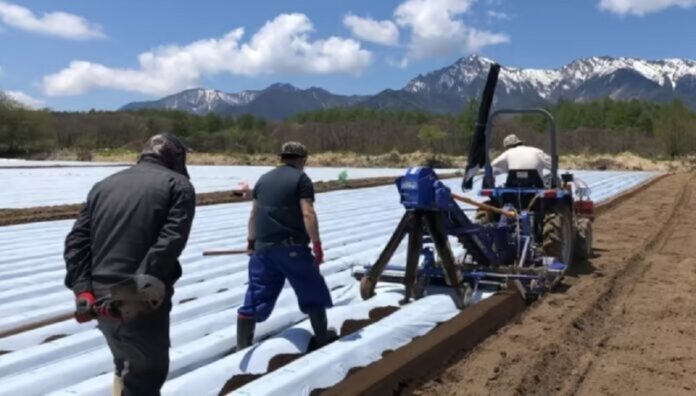By: Staff Writer
Colombo (LNW): Japanese farms are recruiting workers from Sri Lanka and other countries in South and Southeast Asia especially for the modern agriculture sector in that country, Foreign Employment Ministry revealed.
The Government of Japan has agreed to provide employment opportunities to 1,000 Sri Lankan youth in the field of agriculture.
The related Memorandum of Understanding (MoU) has already signed by the two countries provide these jobs for youths in the country
The Japanese Farmworker Jobs for foreigners with Airfare Tickets, Lodging, and Month-to-month salaries Are now opened under a new Visa system.
More than 80% of foreigners are working in Japan in all sectors. Nonetheless the Agriculture sector is rapidly rising in Japan.
And the demand for Farmers is rising day by day. Some examples of the duties on the farm are feeding and cleaning animals, planting fruit and veggies (much like potatoes, lettuce, leeks, tomatoes, strawberry, melons, and lots of others.), and harvesting crops.
Japan has an important agriculture enterprise. The everyday pay for Farmer is JPY 7,900,345 a 12 months and JPY 3,798 an hour in Tokyo, Japan. No IELTS or TOEFL is required.
According to Nikkei Asia, farms across Japan are increasingly turning to temporary workers from Southeast Asia and beyond for help during the busy seasons, as a shrinking rural population and ageing local workforce stoke labour shortages at home.
As part of this shift, Persol Holdings, one of Japan’s largest temporary staffing firms, in March launched a service to send foreign workers to farms for seasonal jobs such as harvesting.
Persol Global Workforce, a unit of the broader company, recruits workers from Indonesia and other Southeast Asian nations who have studied in places such as agricultural schools.
They enter Japan on “specified skilled worker” visas, with Persol offering them the chance to “refine their skills” on a variety of farms around Japan.
That means Japanese farmers can reduce costs by only taking on staff for periods when they are needed, with the recruitment agency sending workers from site to site as harvest times often differ by region.
For example, cabbage is harvested in Gunma and Nagano prefectures from June to October, but Chiba and Aichi prefectures gather the crop from November to May.
“It will be difficult for our country to secure enough farmworkers solely from a local population that is continuing to decline,” said Morihiro Tada, CEO of Persol Global Workforce. “We need to take a whole new approach to maintaining the agriculture that is essential to our lives.”
Persol in November acquired a foreign worker dispatch business from Tokyo-based agricultural staffing company Sharagri as the foundation for its push into the sector.
The company plans to attract new customers by capitalizing on Sharagri’s relationship network with farmers across the country, as well as by cooperating with local governments.

